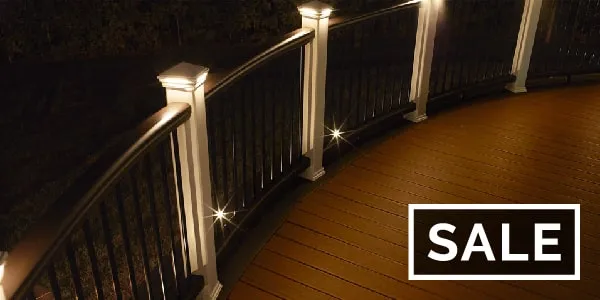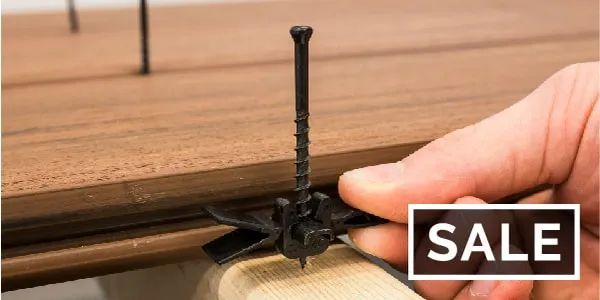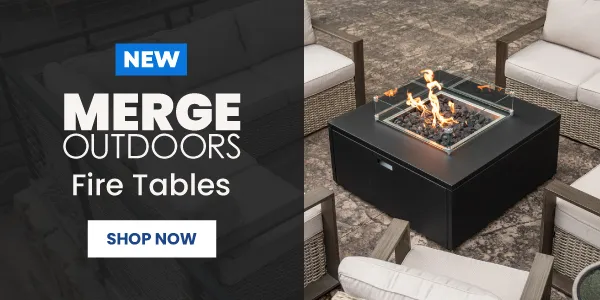Guide for Deck Lights Disposal and Recycling
Guide for Deck Lights Disposal and Recycling
This guide will cover the many facets of light recycling and how users can properly recycle or dispose of light bulbs and other light related equipment.




Table of Contents
Why Is It Important to Recycle Light Bulbs?
Where Can I Recycle Lights If My Area Prohibits Recycling?
What Is Light Recycling?
Light recycling refers to the proper management and repurposing of all types of light bulbs. While most people are aware of other recyclable materials, such as paper, plastic, and glass, recycling light bulbs is a lesser-known recycling service with untold environmental impact. There are many recycling centers and companies throughout the country that accept old and unwanted lights for recycling.
Why Is It Important to Recycle Light Bulbs?
Energy-saving light bulbs are becoming increasingly popular in many households and business settings.
Most of these lamps, such as compact fluorescent lamps (CFLs), contain small amounts of mercury, which is an essential energy-efficient light source. When the CFL lamp is broken, it can release mercury into the surrounding environment in the form of liquid, vapor, or both.
This can pose problems like potential exposures to mercury and environmental contamination. It is also recommended to recycle light bulbs for a variety of other reasons:
Fluorescent lights are listed under the Household Hazardous Waste category, along with other common products. [Department of Ecology]
Improper disposal of light bulbs can contribute to mercury pollution. Recycling can help prevent the release of mercury into the environment. [Lamprecycle.org]
Some states and local jurisdictions may prohibit their constituents from disposing of CFLs and other mercury-containing light bulbs. Others require these products to be recycled. [EPA]
Recycling Deck Lights
With waste production on the rise, most trash goes to dumping grounds, which take up a lot of space. Recycling is an excellent way to reduce waste and to reuse products as much as possible.
Apart from night illumination, deck lights provide ambient lighting to help boost curb appeal. Decks with hot tubs and wet bars should also have proper lighting to accommodate unfamiliar guests who are using them.
Deck lights have a shelf life and will eventually need to be disposed of. Instead of throwing them away, it’s best to recycle them.
Common Types of Light Bulbs
| Light Bulb Type | Recyclable? | Description |
|---|---|---|
| Incandescent Lights | No | Unlike most light bulbs, older incandescent lamps must be thrown away. While they can be recycled, the process of separating the materials is highly specialized and tedious. This is why not all recycling centers accept incandescent lights. |
| Halogen Lights | No | Just like incandescent lamps, halogen light bulbs can be disposed of in normal household waste. However, there are only a few waste and recycling centers that accept halogen lights. |
| LED Lights | Yes | LED bulbs are usually non-toxic and can be dropped off at local recycling centers, mainly those that specialize in recycling consumer electronics. These are the most enviromentally-friendly lighting option as well as the longest-lasting. |
How to Recycle Light Bulbs
Before recycling light bulbs, review the regional or state environmental regulatory agency for guidelines regarding the type of light bulb you wish to dispose of. It is recommended to look up stores or local organizations that recycle them.
Deck Lights Disposal
Some deck lights are beyond recycling, especially if they are broken. It is important that households know how to ethically handle and dispose of them safely.
Responsibilities of the User
Most manufacturers have specific instructions on how to properly dispose of light bulbs that are old or damaged. It is the responsibility of the user to read the package carefully and to follow the instructions.
In most cases, the manufacturers also list recycling centers that accept a particular type of light bulb. Users should familiarize themselves with local regulations regarding the responsible disposal of waste, including toxic products. Users can also practice the recycling of clean lights for those that do not contain hazardous materials, if permitted by their local council.
Broken Light Bulbs
The first step is to protect yourself by wearing gloves and sweeping up all the fragments and any residue using a broom and dust pan. Next, place the contents of the dust pan into a rigid and sealable food storage bag, making sure it doesn’t leak or spill. Then, wipe the area with a clean damp towel to ensure all particles have been picked up. It’s also a good idea to open the windows and doors. Ventilating the area and avoiding the use of a vacuum can keep any mercury from becoming airborne. Lastly, dispose of the waste at a local hazardous waste center.
Old or Burned-Out Lights
Old lights that are no longer functioning or have been replaced by newer and more energy-efficient lamps can be repurposed or disposed of in regular household waste receptacles. Wrap the light bulbs tightly and seal in a plastic bag to avoid injury to the trash collectors.
Where Can I Recycle Lights If My Area Prohibits Recycling?
Some US states and local jurisdictions have stricter regulations and may prohibit individuals from recycling lights. Here are three ways to safely dispose of old or damaged lights:
Waste Collection Agencies
Earth 911's website helps users search for collection schedules and drop-off locations in the area.
Here are some things to note regarding waste collection agencies: They may or may not charge a small fee for their services They may have a specific schedule throughout the year for collecting certain household materials, like light bulbs and fixtures They may collect other hazardous materials, such as batteries, paints, and pesticides
Local Retailers
Below you can find a list of retailers that offer in-store recycling for light bulbs. Before going to the store, contact the branch to verify that they recycle lights.
Aubuchon Hardware Bartell Drugs Bulbcycle Christmas Light Recycling by Environmental LED Christmas/Holiday Light Recycling Program by Holiday LEDS IKEA Lowe's MOM's Organic Markets Simple Cycle TrueValue
Earth 911's website also provides a list of retailers that offer in-store recycling for light bulbs.
Mail-Back Services
For those living in a remote location or for those who don’t have local recycling options, mailing used bulbs can be an alternative solution. Some manufacturers sell pre-labeled recycling kits that are used to fill old bulbs to be sent back. Here are examples of companies that offer this service:
BakPak Mail-Back Recycling (NLR, Inc.) Ecolights Lampmaster RecyclePak from Veolia Environmental Services Stericycle Environmental Solutions Other Resources LampRecycle's interactive US map for light recycling programs in different states
References:
What are the Connections between Mercury and CFLs? The United States Environmental Protection Agency. https://www.epa.gov/cfl/what-are-connections-between-mercury-and-cfls. Accessed March 17, 2020.
Fluorescent Lamp Recycling. University of California Irving Environmental Health and Safety Management. https://www.ehs.uci.edu/programs/enviro/fluorescent_lamp_recycling.pdf. Accessed March 17, 2020.
Light Bulb Recycling. Solana Center for Environmental Innovation. https://www.solanacenter.org/resources/divert-waste/light-bulb-recycling. Accessed March 17, 2020.
What to Do with Old Fluorescent Light Bulbs: A Recycling and Disposal Guide. Hazardous Waste Experts. https://www.hazardouswasteexperts.com/about-us/. Accessed March 17, 2020.
Recycling and Disposal of CFLs and Other Bulbs That Contain Mercury. United States Environmental Protection Agency. United States Environmental Protection Agency. https://www.epa.gov/cfl/recycling-and-disposal-cfls-and-other-bulbs-contain-mercury. Accessed March 17, 2020.






